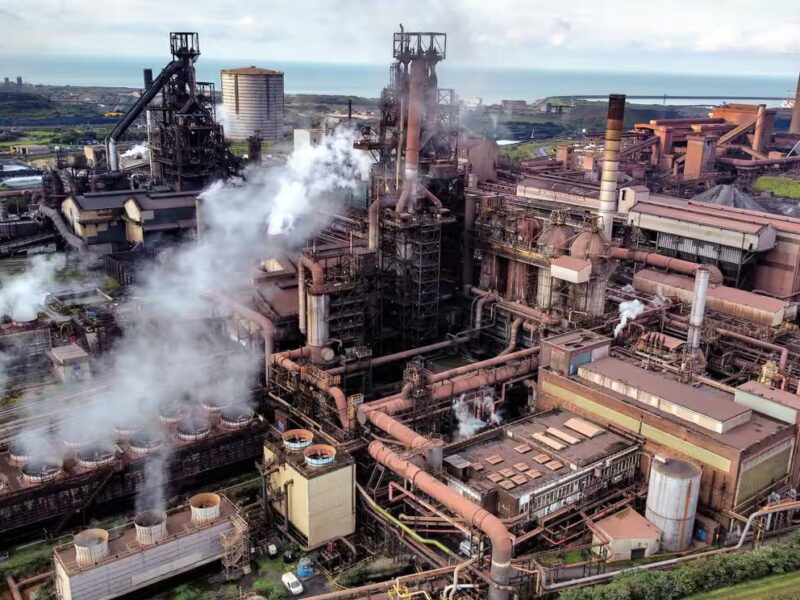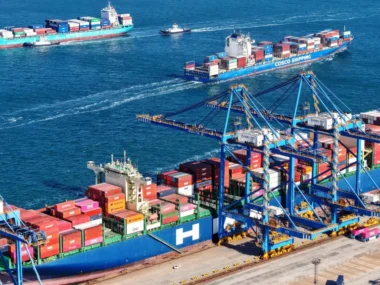Employees had been informed that two blast furnaces will be closing, and they could lose up to 3,000 jobs.
In a remarkable last-minute reprieve that has left workers uncertain about the plant’s future, Tata Steel withdrew an announcement that was meant to outline substantial job cutbacks at its Port Talbot steelworks.
After a board meeting on Wednesday, workers had been prepared for confirmation of the two blast furnace closures. Tata did, however, inform everyone that it would not be making a comment regarding its plans following the board meeting.
Regarding the rationale and the likelihood that Tata will make an announcement in the upcoming days or weeks, unions have been kept in the dark.
Instead of stopping the blast furnaces, employees are hopeful that the firm will take the unions’ proposals into consideration. Any long-term relief would, however, be a huge surprise, as unions had been provided thorough briefings on the closure’s details and Tata executives in Port Talbot had already begun planning preliminary plans for it.
By March, unions had prepared for up to 3,000 job losses at the largest steelworks in Britain and related facilities; this was a devastating blow to the town that developed around the steelworks. Port Talbot employs about 4,000 people.
The four blast furnaces in the UK are split between the British Steel factory in Scunthorpe, which is owned by the Chinese steel manufacturer Jingye, and the Tata facility in Port Talbot. Both businesses are facing pressure to change their production processes away from carbon dioxide-producing ones. Just the two blast furnaces in Port Talbot, which run on coal, are responsible for 1.8% of UK emissions, which exacerbates the climate problem.
The companies are expected to install electric arc furnaces, a technology that uses electricity to melt scrap steel, replacing the blast furnaces that dominate the landscapes of both towns and need thousands of workers to support. Steel production is expected to continue on both sites.
The UK government intends to provide Tata with £500 million in subsidies to aid with its upgrade; but, that amount would not cover the cost of setting up a plant to produce iron ore with zero emissions, which would save a great number of jobs. It is anticipated that Tata will provide approximately £725 million to support the transition to more environmentally friendly production practices.
Following the initial disclosure of the extent of the potential job cuts last month, union representatives met with Tata’s management in London to discuss the timeline. Tata employs 8,000 workers nationwide.
At Scunthorpe, thousands of jobs are also said to be at jeopardy. It is believed that British Steel will meet with trade unions the next week to discuss its decarbonization strategy, which may result in the loss of up to 2,000 jobs.
Tata refuses to provide a straight response about the Port Talbot plans. “We hope to start formal consultation with our employee representatives shortly,” a spokeswoman stated. We will go into further depth regarding our plans to move Tata Steel UK toward a decarbonized future during these talks.
“We think that switching to green steelmaking with our £1.25 billion plan will protect the company in the long run, support UK steel security, and contribute to the growth of a green ecosystem in the area.
“We will carefully consider any suggestions made, and we are dedicated to providing our trade union partners with meaningful information and consultation processes.











